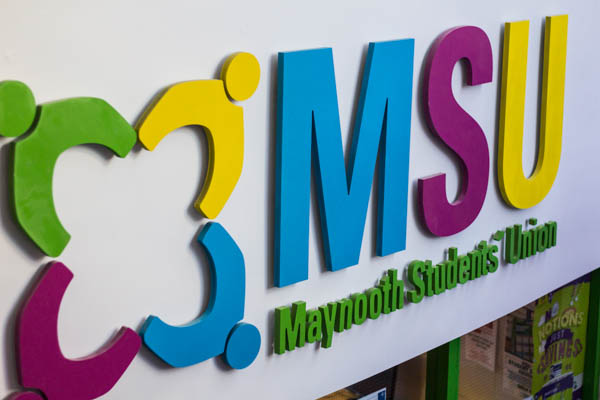Maynooth Students’ Union (MSU) is pioneering a new structure for its council that will, the union says, introduce better representation for students.
Last week, MSU introduced a new structure that will see the creation of the student senate and the academic council, with both focusing on separate areas of the university.
Such a change is highly significant for the union. Endorsed by a referendum and in the works for years, MSU’s reform ensures its representative structure is quite unlike most unions in the country. While Trinity College Dublin Students’ Union (TCDSU) recently introduced an academic senate, the body currently has no constitutional foundation and lacks the power to unilaterally introduce new policies or mandate union officers.
Leon Diop, President of MSU, explained that the decision to split the union came from the belief that when the union was one body, neither academic or policy issues were getting the proper attention they deserved. The decision to split the union was the idea of Dillon Grace, last year’s MSU President.
“He decided to split union council into student senate, which would look after governance and policy, and academic council, which looks at academic issues”, said Diop, speaking to The University Times.
The change required a referendum to amend the constitution, which occurred during the 2015/16 academic year when Grace was MSU Education Officer.
Senators are appointed through a combination of co-option and election, with representatives drawn from across campus groups and demographics.
Unlike other unions, the senate also has an external chair. Jack Leahy, former USI Vice-President for Academic Affairs and former TCDSU Education Officer, is the inaugural chair. Diop said he was appointed due his “fantastic” credentials.
The senate, which examines governance issues, is composed of 44 senators in total. There are four representatives from clubs and societies, four students from each of Maynooth University’s three faculties, three undergraduates and one postgraduate. The remaining senators come from various interest groups around campus.
The academic council, which focuses on academic issues, works closely with the Vice-President for Education in MSU. Diop said that both the council and senate “co-exist” and work in a similar way to the governing body of the university.
The new organisations have been afforded significant power. Diop explained that, within the union, the only form of authority higher than the senate is a referendum. “Senate has the power to overturn executive decisions”, he said. The senate can overturn officers’ decisions and also has the power to impeach union officers after a two-thirds majority vote.
For instance, following a motion at the first senate gathering this week, if an officer’s report is not approved by the senate, they can be brought before the disciplinary committee of the union. If their reports are repeatedly unsatisfactory, the senate can immediately impeach the officer with a two-thirds majority vote.
Diop believes that this power will be successful in “putting the fire under the officers to make sure they’re performing, that they’re providing a report and that they’re providing an adequate report”.
Diop has particularly commended the formality of the new process: “I think it was definitely a lot better structured, a lot more formal. Dillon [Grace] has definitely completely reformed this place and the structure that gives feedback.”
Under the current schedule, the senate will convene once a month.







